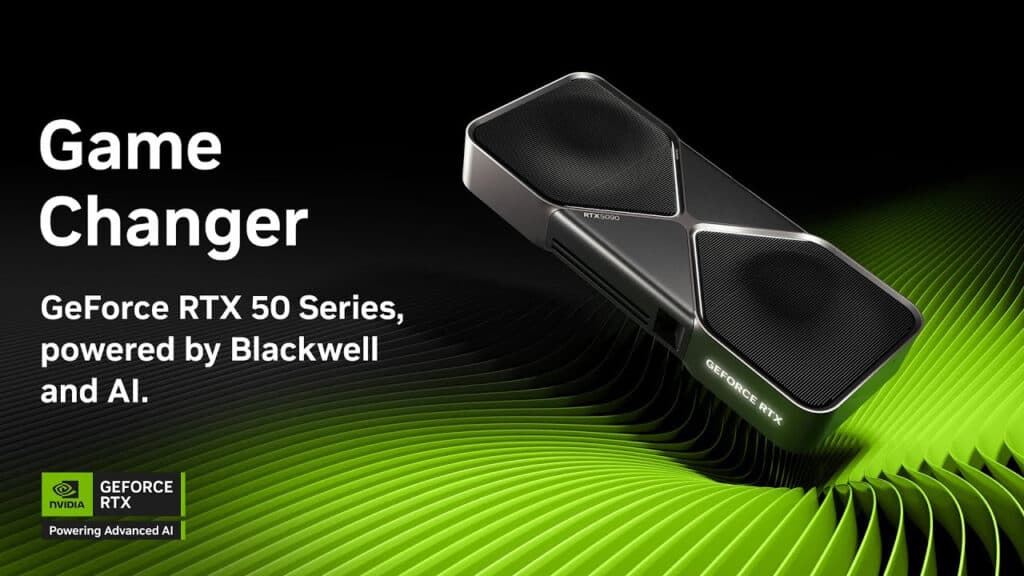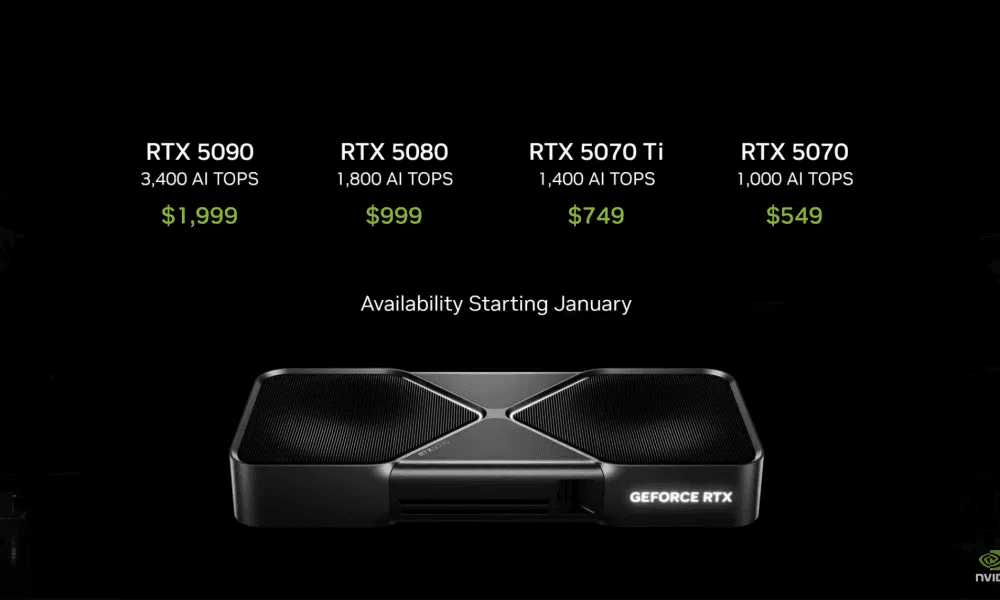Is the RTX 50 series worth it over your current GPU?
Nvidia has created quite a bit of buzz with the announcement of the RTX 50 series of graphics cards. The Blackwell generation of GPUs looks to be a major improvement in terms of both performance and price over the RTX 40 series. However, if you're the proud owner of an RTX 4090, is it really worth it to upgrade to something like the RTX 5070?
Many consumers have been asking that same question due to Nvidia's claim that the RTX 5070 features the same performance as the 4090 at one-third of the price. Naturally, if you can cut ties with the 4090 and upgrade to the newer generation for less money and identical performance, it sounds like a no-brainer.
However, things might not be what they appear when directly comparing the RTX 5070 and 4090. Below, we'll get into whether or not you should truly consider upgrading from the Ada to the Blackwell generation of GPUs.

The RTX 5070 vs RTX 4090
According to Nvidia, the RTX 5070 features the same performance as the RTX 4090 in gaming. This means you can presumably expect to see the same frames per second and overall speeds when using either card. This also comes with the fact the 5070 retails for $549 whereas the 4090 still costs well over $1,500. The same performance for a $1,000 price reduction sounds a little too good to be true, and that could be the case.
While it's true you might see similar fps between the RTX 5070 and 4090, the source of that fps is likely drastically different. In all likelihood, the RTX 5070 can only reach the performance of the 4090 by using new DLSS and Frame Generation technology.
DLSS 4 and Multi Frame Generation
The RTX 50 series will come equipped to utilize the latest DLSS 4 upscaling functionality and Multi Frame Generation. DLSS 4 promises massive performance boosts at little to no visual fidelity loss while Multi Frame Generation adds even more fps for GPUs that support it. Of course, Multi Frame Generation will also add quite a bit of input latency, so it's not ideal for multiplayer titles.
With DLSS 4 and Multi Frame Generation, the RTX 5070 can likely come close and match the RTX 4090 in terms of performance. Of course, with the RTX 4090, you can achieve those frames natively without having to rely on extra settings. This means you'll see less input latency and overall improved visuals.
Without seeing benchmarks of the 5070, though, we're not 100% sure how much the GPU relies on DLSS and Frame Generation. Nvidia stated at CES 2025 that AI is doing a ton of heavy lifting to achieve more performance for less with the Blackwell GPUs. Only time will tell if AI really does play a major part in the additional performance or if Nvidia is simply falling back on its software to make its claims true.

VRAM differences
An important distinction to make with both GPUs is the available VRAM on each of them. The RTX 4090 has 24 GB of GDDR6X memory on every available model of the card while the RTX 5070 initially only comes with 12 GB of GDDR7 memory.
While 12 GB of memory is plenty for most games and workflow tasks of the everyday consumer, having double the amount of VRAM is a big deal to some. Whether you're rendering 3D models, working with AI, or maxing out your game's settings, more VRAM is never a bad thing.
The RTX 5070 is currently the only 50 series GPU to have less than 16 GB of GDDR7 memory. The 5070 Ti and 5080 both have 16 GB while the 5090 has the flagship standard 24 GB.
Conclusion
Overall, if you have an RTX 4090, you should likely keep it over upgrading to the RTX 5070. The 4090 has double the VRAM, can match the 5070 without relying on DLSS and Frame Gen, and won't require the hassle of another GPU purchase.
If you simply want access to all of the new software Nvidia is offering, like DLSS 4, then your best bet is upgrading to the 5070 Ti or 5080 if you don't want to spend $2,000 on the 5090. The 5070 Ti and 5080 both cost at least $500 less than the 4090 and should offer better performance while having competitive VRAM. Both cards will likely also be able to reach the performance of a 4090 without the need for too much upscaling.
We still have to await benchmarks for the RTX 50 series, but for now, the 5070 doesn't appear to be worth the upgrade over the 4090. That could change based on benchmarks, but most consumers will get more out of their money if they choose any of the other three 50 series GPUs.
You can see the exact release dates for all RTX 50 series GPUs in our previous guide.
That's all for now. Stick around on esports.gg for more news and updates.